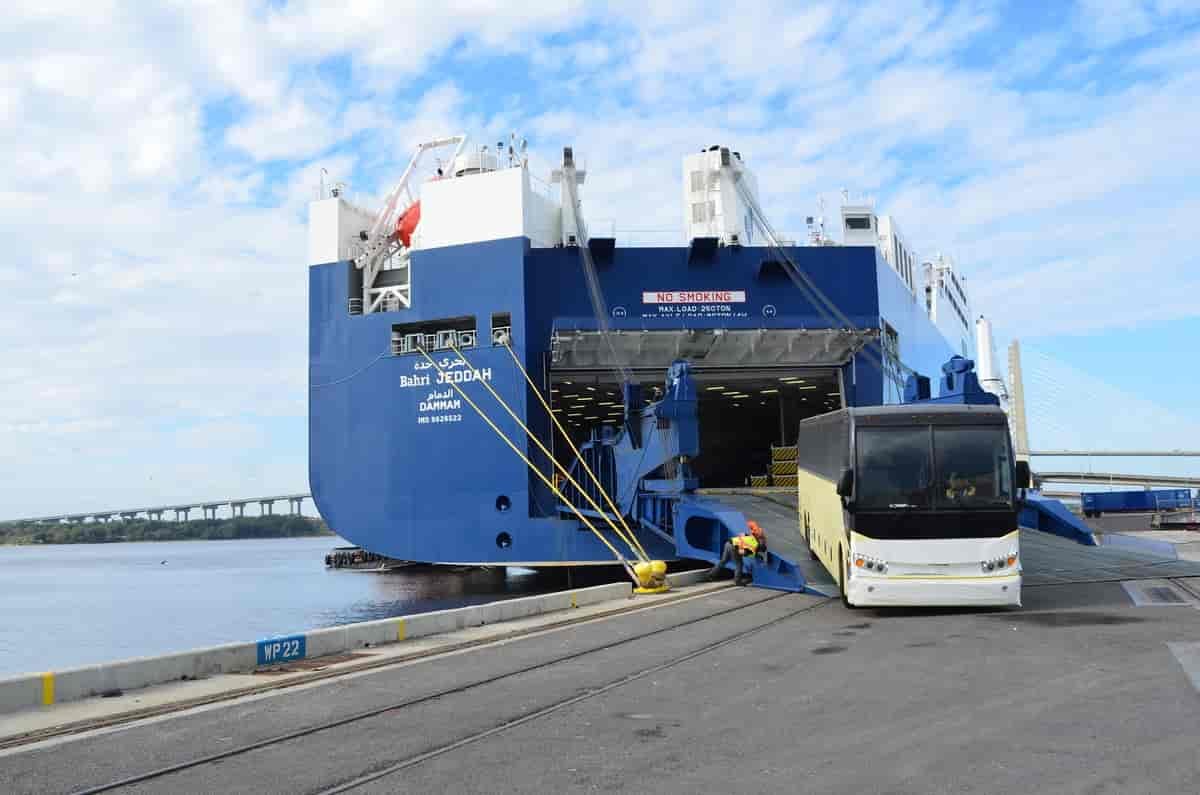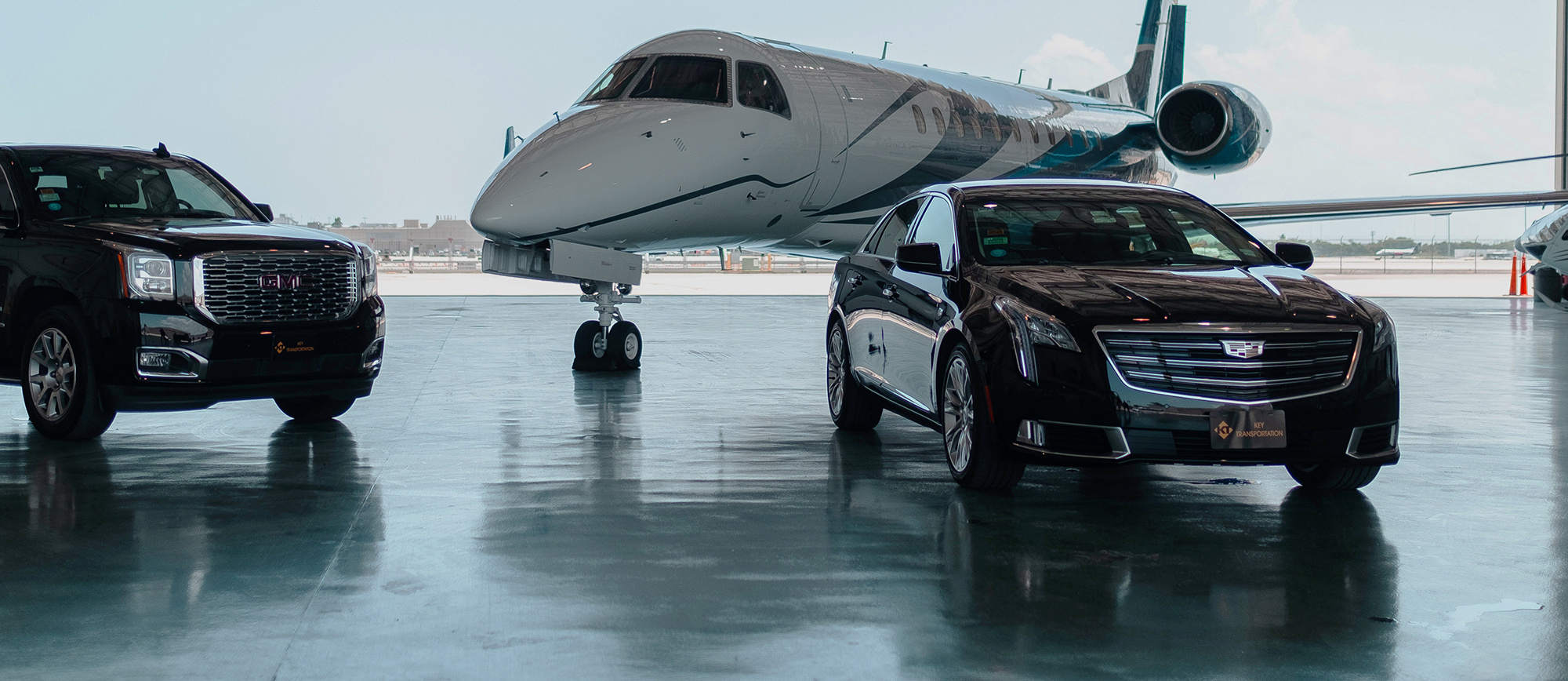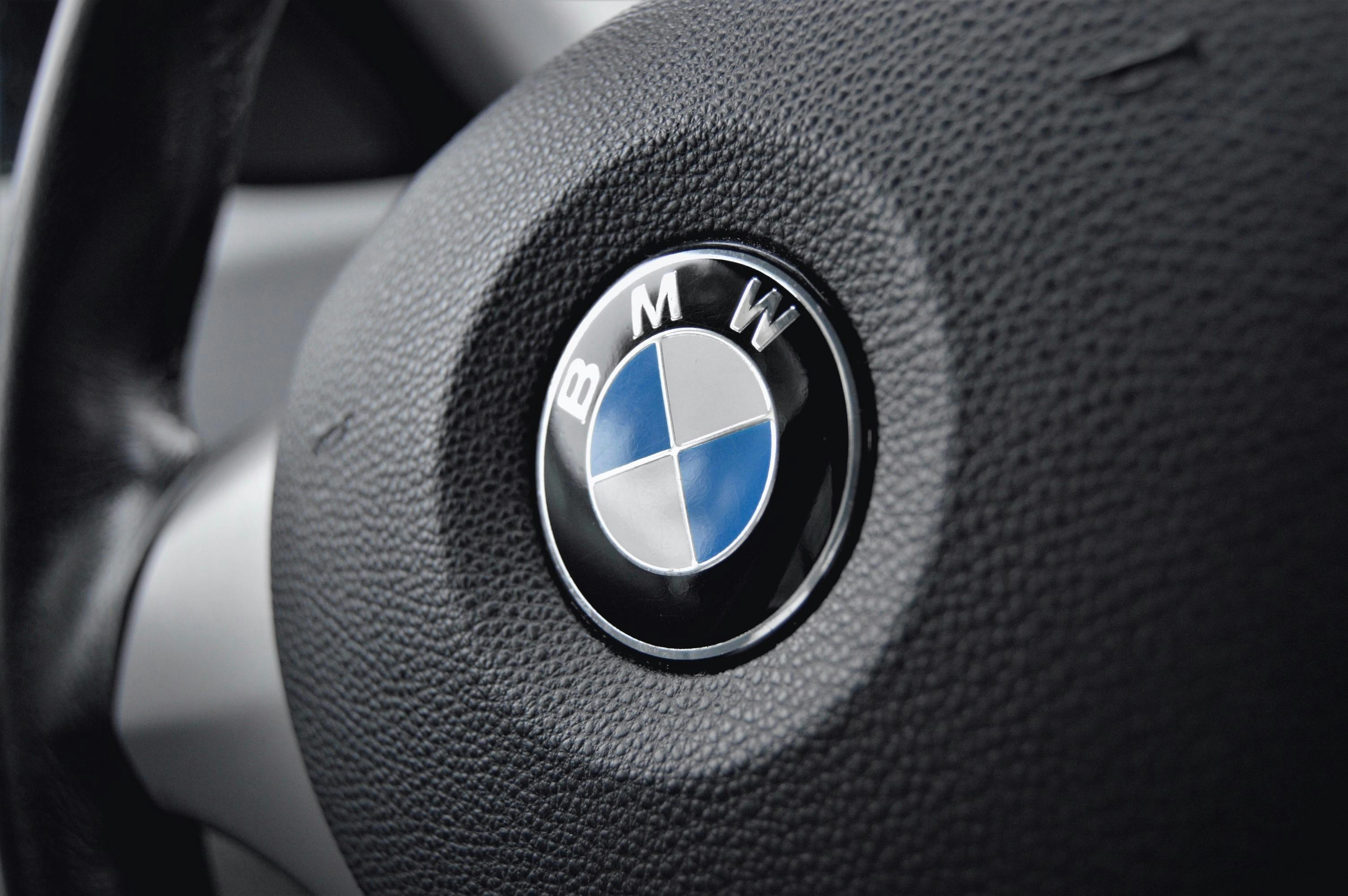Ship a Car to Germany | Import Your Car
How to Ship a Car to Germany
When it comes to international auto transport, shipping a car from the USA to Germany requires expert knowledge, careful planning, and a reliable shipping partner. Whether you're relocating for work, returning home after time in the States, or importing a special vehicle, understanding the entire process is crucial for a smooth experience. This comprehensive guide walks you through everything you need to know about shipping cars to Germany, from costs and timeframes to customs requirements and shipping methods.
As a leader in international auto transport with decades of experience shipping vehicles to and from Germany, West Coast Shipping offers unmatched expertise in navigating the complexities of overseas vehicle transport. Our established routes between major US ports and German destinations like Bremerhaven and Hamburg ensure your vehicle arrives safely, on time, and with minimal hassle. Import a car with West Coast Shipping today:
How Much Does Shipping a Car to Germany Cost?

The cost to ship a car to Germany from the USA typically starts at $1000, though prices can vary significantly based on several factors. Understanding these variables helps you budget appropriately for your vehicle shipment.
Key Factors Affecting Shipping Costs
-
Vehicle size and weight: Larger vehicles require more space and cost more to ship. A compact car will cost less than an SUV or truck.
-
Shipping method: Container shipping (shared or exclusive) versus Roll-on/Roll-off (RoRo) or air freight options
-
Departure location: East Coast departures to Germany are generally less expensive than West Coast shipments due to shorter distance
-
Seasonal fluctuations: Peak shipping seasons can increase costs
-
Additional services: Door-to-port or door-to-door service versus port-to-port
-
Insurance coverage: Higher coverage limits increase overall costs but provide better protection
Breakdown of Typical Shipping Expenses
When budgeting for shipping your car to Germany, consider these common expenses:
-
Base shipping rate
-
Customs clearance fees
-
Terminal handling charges
-
Destination charges at German ports
-
Inland transportation (if needed)
-
Marine insurance premiums
-
VAT and import duties (if applicable)
-
Vehicle cleaning and inspection fees
Get a Personalized Quote Today
Rather than relying on general estimates, request a customized quote from West Coast Shipping that accounts for your specific vehicle and requirements. Our transparent pricing ensures no hidden fees or surprises.
Request a free car shipping quote to Germany
Vehicle Import Requirements for Germany
Before shipping your vehicle to Germany, you must ensure it meets all import requirements and that you have the necessary documentation.
Essential Documentation
-
Original vehicle title (clear and lien-free)
-
Purchase invoice or bill of sale
-
Valid passport or identification
-
Power of attorney (if using a shipping agent)
-
Completed customs forms
-
Vehicle registration documents
-
Proof of insurance
-
EPA/DOT compliance or exemption documentation (for US-spec vehicles)
-
Export clearance from US Customs
Import Eligibility Considerations
Germany has strict requirements regarding vehicle emissions and safety standards. Vehicles must comply with European regulations or qualify for specific exemptions.
Conforming vs. Non-conforming Vehicles
European-spec vehicles generally face fewer hurdles than US-spec vehicles. If your vehicle wasn't manufactured for the European market, it may require modifications to meet German standards or qualify under an exemption category.
For classic cars 25 years or older, Germany offers simplified import procedures under vintage vehicle classifications. West Coast Shipping specializes in classic car transport, providing appropriate handling and documentation for these valuable vehicles. Learn more about our classic car shipping expertise for international transport.
Car Shipping Services And Methods

Choosing the right shipping method depends on your budget, timeline, and specific requirements for your vehicle.
Container Shipping
Container shipping offers the highest level of protection for your vehicle during transit. There are two main container options:
Shared Container (Consolidated)
-
Multiple vehicles share a 40ft container
-
Cost-effective option that splits expenses between shippers
-
Vehicles are securely loaded and braced
-
Protected from weather elements and external damage
-
Typical cost: $1,800-$2,500 from East Coast, $2,500-$3,000 from West Coast
Exclusive Container
-
Dedicated 20ft or 40ft container exclusively for your vehicle(s)
-
Maximum protection and security
-
Ability to ship personal items inside the vehicle or container
-
Faster processing without waiting for consolidation
-
Ideal for luxury, classic, or high-value vehicles
-
Typical cost: $3,000-$4,500 depending on container size and departure port
West Coast Shipping uses advanced loading systems and thorough documentation with photographs before and after loading. Our secure container seals ensure your vehicle remains untouched during transit.
Roll-on/Roll-off (RoRo) Shipping

-
Vehicles are driven directly onto specialized vessels
-
Generally more affordable than container shipping
-
Faster processing at ports
-
Limited to operational vehicles only
-
Vehicle must be empty (no personal belongings)
-
More exposure to elements
-
Typical cost: $1,500-$2,200 depending on vehicle size and departure port
Air Freight

-
Fastest shipping method (days instead of weeks)
-
Highest level of security and handling
-
Significantly more expensive than sea freight options
-
Ideal for urgent deliveries, extremely valuable vehicles, or show cars
-
Typical cost: $8,000-$15,000+ depending on vehicle size and weight
Which Method Is Best?
At West Coast Shipping, we recommend:
-
Container shipping for luxury, classic, or high-value vehicles
-
RoRo shipping for oversized vehicles
-
Air freight for time-sensitive or ultra-premium vehicle shipments
We'll help you select the optimal shipping method based on your specific situation. Contact us to discuss which option is best for your vehicle.
Step-by-Step Process for Shipping a Car to Germany

Shipping your car to Germany involves several key steps. West Coast Shipping handles most of these for you, but understanding the process ensures you're prepared at each stage.
1. Request a Quote and Book Your Shipment
Begin by requesting a quote from West Coast Shipping through our Germany shipping calculator or by calling our shipping specialists. Once you accept the quote, we'll schedule your shipment and provide guidance on next steps.
2. Prepare Your Vehicle
-
Clean your vehicle inside and out
-
Remove personal belongings (unless shipping via exclusive container)
-
Ensure the gas tank is no more than ¼ full
-
Disable alarm systems
-
Document any existing damage with photographs
-
Check tire pressure and battery charge
-
Remove or secure loose parts and accessories
3. Deliver Your Vehicle
Depending on your service level, either:
-
Drive your vehicle to our nearest processing facility
-
Arrange for pickup at your location (door-to-port service)
-
We'll coordinate domestic transport if you're not near a departure port
4. Documentation and Customs Clearance
Our team will help prepare and submit all required documentation for export from the USA and import into Germany. We handle:
-
Export customs clearance in the USA
-
Shipping documentation
-
Preparation of import documents for German customs
5. Vehicle Inspection and Loading
Before shipping, your vehicle will undergo thorough inspection with detailed documentation of its condition. It will then be properly secured for transport using appropriate methods based on your chosen shipping option.
6. Ocean Transit
Your vehicle will be transported across the Atlantic to your designated German port. Transit times vary based on departure location and shipping method.
7. Arrival and Import Processing
Upon arrival in Germany, your vehicle will:
-
Be unloaded and inspected
-
Go through customs clearance
-
Undergo any required cleaning or inspections
-
Be prepared for delivery or pickup
8. Delivery or Pickup in Germany
For door-to-door service, we'll arrange final delivery to your location in Germany. Alternatively, you can pick up the vehicle at the destination port or terminal once all formalities are completed.
West Coast Shipping manages this entire process, providing regular updates and addressing any concerns along the way. Our comprehensive service minimizes stress and ensures compliance with all regulatory requirements.
Shipping Timeline: How Long Does It Take to Ship a Car to Germany?
Understanding the typical timeframes for shipping a car to Germany helps you plan effectively for your vehicle's arrival.
Port-to-Port Transit Times
Transit times from US ports to German ports generally range:
-
East Coast to Germany: 10-14 days on water
-
West Coast to Germany: 21-35 days on water
-
Gulf Coast to Germany: 14-21 days on water
Total Timeline Expectations
For a complete door-to-door service, allow additional time:
-
Vehicle pickup and processing: 3-7 days
-
Export customs clearance: 1-2 days
-
Ocean transit: 10-35 days (depending on departure port)
-
Import customs clearance in Germany: 2-5 days
-
Delivery to final destination: 1-5 days (depending on location)
In total, expect the process to take approximately 4-8 weeks from pickup to final delivery. West Coast Shipping provides tracking information throughout the journey, keeping you informed about your vehicle's progress.
Expedited Shipping Options
Need your vehicle in Germany faster? We offer expedited options:
-
Priority processing at origin
-
Express ocean freight services where available
-
Air freight for ultra-fast delivery
-
Expedited customs handling
Contact our shipping experts to discuss expedited shipping options for your timeline needs.
Major Shipping Ports and Destinations in Germany
Understanding the major ports in Germany helps you select the optimal destination for your vehicle shipment.
Primary German Ports
Bremerhaven
-
Germany's largest automobile port
-
Handles over 2 million vehicles annually
-
Excellent infrastructure for vehicle processing
-
Primary destination for most US vehicle shipments
-
Comprehensive customs facilities
Hamburg
-
Second largest port in Germany
-
Excellent connections to inland transportation
-
Alternative to Bremerhaven with similar capabilities
-
Good option for vehicles destined for northern Germany
Other European Ports Serving Germany
Antwerp (Belgium)
-
Major European port with excellent German connections
-
Sometimes used as an alternative entry point
-
May offer scheduling advantages in certain situations
Rotterdam (Netherlands)
-
Europe's largest port with connections to Germany
-
Extensive vehicle handling facilities
-
Alternative routing option depending on schedules and prices
Major Inland Destinations
West Coast Shipping can arrange delivery to all major German cities and regions, including:
-
Berlin
-
Munich
-
Frankfurt
-
Cologne
-
Stuttgart
-
Dresden
-
Düsseldorf
-
Hannover
-
Leipzig
-
Nuremberg
Our extensive logistics network ensures seamless delivery throughout Germany, regardless of your final destination.
Customs, Taxes, and Duties for Importing Cars to Germany
Navigating German customs requirements and understanding potential tax obligations is crucial when importing a vehicle.
Value Added Tax (VAT)
Germany charges a 19% VAT on imported vehicles. This tax is calculated based on:
-
Vehicle purchase price
-
Shipping costs
-
Insurance costs
-
Any other fees associated with importing the vehicle
Customs Duty
If you're permanently importing a vehicle, you may need to pay customs duty:
-
Passenger cars: 10% of vehicle value
-
Motorcycles: 6-8% depending on engine size
-
Classic vehicles over 30 years old: 7% (with proper documentation)
Exemptions and Special Cases
Several scenarios may qualify for reduced taxes or duty exemptions:
Temporary Import
For temporary visits (under 12 months), you may import your vehicle without paying permanent import duties by:
-
Providing proof of temporary stay
-
Posting a bond or deposit
-
Committing to export the vehicle before your departure
Returning Residents
German residents returning after living abroad may qualify for duty-free import if:
-
They've owned the vehicle for at least 6 months before returning
-
They've lived abroad for at least 12 months
-
The vehicle will not be sold within 12 months of import
Military Personnel
U.S. military personnel stationed in Germany operate under special agreements that may provide customs exemptions. Specific documentation and procedures apply.
Emissions and Technical Standards
All vehicles must meet European emissions standards or qualify for exemptions (such as classic car status). Non-compliant vehicles may:
-
Require modifications
-
Face additional testing and certification costs
-
Be restricted in certain urban areas with environmental zones
West Coast Shipping's customs experts guide you through these requirements, helping you understand your tax obligations and identifying potential exemptions to minimize your import costs.
Special Considerations for Different Types of Vehicles

Different vehicle types have unique shipping requirements and considerations when being transported to Germany.
Classic and Vintage Cars
Germany offers special provisions for classic cars (generally 30+ years old):
-
Simplified technical inspections
-
Potential tax benefits
-
Special classic car registration options
-
Exemption from certain emissions requirements
West Coast Shipping has extensive experience with classic car transport, providing:
-
Custom crating for extremely valuable classics
-
Climate-controlled container options
-
Additional insurance coverage options
-
Documentation assistance for historic vehicle status
Luxury and High-Value Vehicles
For premium automobiles, we recommend:
-
Exclusive container shipping
-
Additional insurance coverage
-
GPS tracking options
-
White-glove service with enhanced security
-
Pre-cleaning and detailing services
Electric Vehicles
Electric vehicles (EVs) require special handling:
-
Battery safety protocols
-
Reduced battery charge for shipping (typically 30-50%)
-
Compliance with hazardous material shipping regulations
-
Special documentation for lithium batteries
Motorcycles
Motorcycle shipping to Germany offers several options:
-
Crated shipping for maximum protection
-
Multiple motorcycles per container to reduce costs
-
Custom securing systems to prevent movement
-
Special preparation requirements
Military and Diplomatic Vehicles
For military personnel or diplomatic staff:
-
Special customs clearance procedures
-
Potential duty and tax exemptions
-
Coordination with military transport offices
-
Assistance with Status of Forces Agreement requirements
West Coast Shipping tailors our services to accommodate these special requirements, ensuring your specific vehicle receives appropriate handling and documentation.
Vehicle Cleaning and Inspection Requirements
Germany has strict biosecurity requirements that must be met before a vehicle can clear customs.
Cleaning Requirements
All vehicles must be thoroughly cleaned before shipping, with special attention to:
-
Undercarriage
-
Wheel wells and tires
-
Engine compartment
-
Interior spaces
This cleaning is essential to remove soil, plant material, and potential contaminants that could pose biosecurity risks.
Professional Cleaning Services
West Coast Shipping offers professional cleaning services that ensure your vehicle meets all German import requirements:
-
Steam cleaning of undercarriage
-
Engine bay cleaning
-
Wheel and tire treatment
-
Interior vacuuming and sanitization
-
Documentation of cleaning for customs purposes
Inspection Process
Upon arrival in Germany, vehicles undergo inspection for:
-
Cleanliness and biosecurity compliance
-
Physical condition matching documentation
-
Technical compliance with European standards
-
Emissions testing (for permanent imports)
-
Safety systems operation
Failing these inspections can result in delays, additional costs, or even refusal of entry. Our preparation processes ensure your vehicle arrives ready to pass all required inspections.
Registering Your Vehicle in Germany
After successfully importing your vehicle to Germany, you'll need to complete the registration process to legally drive it on German roads.
Temporary Registration
For short-term stays, consider:
-
Zoll Kennzeichen (Customs Plates): Red numbers on white background, valid for limited duration
-
Kurzzeitkennzeichen: Yellow numbers on white background, valid for 5 days to 6 months
-
International registration: Using your US plates with proper insurance (for tourists)
Permanent Registration
For permanent imports, you'll need to:
-
Obtain German insurance coverage
-
Complete technical inspection (TÜV)
-
Complete emissions inspection (AU)
-
Visit local vehicle registration office (Zulassungsstelle)
-
Pay registration fees
-
Receive German license plates
Required Documents for Registration
-
Vehicle title and registration
-
Customs clearance documents
-
Proof of insurance (eVB number)
-
TÜV and AU certificates
-
Proof of residence
-
Identification documents
-
Certificate of conformity (for newer vehicles)
West Coast Shipping can connect you with local partners in Germany who can assist with the registration process, technical inspections, and insurance requirements.
Shipping Cars from Germany to the USA
West Coast Shipping also provides comprehensive services for shipping vehicles from Germany back to the USA, ideal for those who purchased a European vehicle or are returning home after time abroad.
Import Requirements for the USA
-
Vehicles must comply with EPA emissions standards
-
Vehicles must meet DOT safety standards
-
Vehicles 25+ years old qualify for classic car exemptions
-
Proper customs documentation is required
Process Overview
-
Vehicle preparation in Germany
-
Documentation and export clearance
-
Ocean transport to US port
-
US customs clearance
-
Delivery to your location
Specialized Services
-
Classic German car imports
-
European delivery program returns
-
Foreign market vehicle importation
-
Diplomatic and military returns
Learn more about our vehicle import services from Germany to the USA and how we can help with your return shipping needs.
Frequently Asked Questions About Shipping Cars to Germany
What documents do I need to ship my car to Germany?
To ship your car to Germany, you'll need:
-
Original vehicle title
-
Bill of sale or purchase invoice
-
Export documentation from US Customs
-
Valid identification
-
Power of attorney (if applicable)
-
Vehicle registration documents
-
Customs declaration forms
West Coast Shipping guides you through the documentation process to ensure everything is properly prepared.
Can I ship personal items in my car?
For container shipping (especially exclusive containers), limited personal items may be included inside the vehicle. However, for RoRo shipping, vehicles must be empty except for factory-installed equipment. Customs regulations may apply to personal items, and additional documentation may be required.
How much will I pay in import taxes and duties?
Import taxes typically include:
-
19% VAT on vehicle value plus shipping costs
-
Customs duty ranging from 6-10% depending on vehicle type
-
Potential exemptions for returning residents or temporary imports
We provide detailed tax estimates as part of our shipping consultation.
Do I need to modify my US-spec vehicle for German roads?
US-spec vehicles may require modifications to comply with European standards, including:
-
Headlight adjustments
-
Turn signal modifications
-
Emissions system updates
-
Additional safety features
Certain modifications can be completed in Germany after arrival. For newer vehicles, compliance can be complex and expensive, while classic vehicles (25+ years) face fewer requirements.
Can I track my vehicle during shipping?
Yes, West Coast Shipping provides tracking information throughout the shipping process. You'll receive updates at key milestones including:
-
Vehicle receipt at origin
-
Loading onto vessel
-
Vessel departure
-
Estimated arrival date
-
Arrival at destination port
-
Customs clearance status
-
Delivery scheduling
How should I prepare my vehicle for shipping?
Prepare your vehicle from the us by:
-
Thoroughly cleaning inside and out
-
Reducing fuel to ¼ tank or less
-
Removing personal items (for RoRo shipping)
-
Securing or removing loose parts
-
Disabling alarm systems
-
Documenting existing condition with photos
-
Checking battery charge and tire pressure
Is my vehicle insured during transit?
West Coast Shipping provides marine cargo insurance options to protect your vehicle during transport. Coverage typically includes:
-
Physical damage during loading/unloading
-
Damage during ocean transit
-
Protection against total loss
-
Coverage for specific declared value
We recommend insurance coverage equal to your vehicle's full market value.
Why Choose West Coast Shipping for Car Transport to Germany
With decades of experience in international vehicle shipping, West Coast Shipping offers unmatched service and expertise for Germany-bound vehicles.
Our German Shipping Advantages
-
Established Routes: Regular sailings to Bremerhaven, Hamburg, and other European ports
-
Comprehensive Service: Door-to-door options with complete handling
-
Customs Expertise: In-depth knowledge of German import requirements
-
Specialized Handling: Options for classic, luxury, and specialized vehicles
-
Competitive Pricing: Transparent quotes with no hidden fees
-
Full Insurance: Comprehensive coverage options for peace of mind
-
Tracking System: Regular updates throughout the shipping process
-
German Partners: Local connections for assistance after arrival
Moving to Germany with Your Car
Planning to ship a vehicle to Germany? Whether you're relocating permanently or temporarily, understanding the process of importing a car into Germany can make a big difference.
West Coast Shipping simplifies this transition by helping you ship your car from the United States safely and efficiently. From navigating international shipping regulations to handling documentation and customs at the port in Germany, we offer full-service support.
Take advantage of current shipping options and start your journey with a reliable team that knows how to move your vehicle from the USA to Germany with care.
Explore our car shipping services to Germany »
Ready to Ship Your Car to Germany?
Take the first step toward hassle-free international car shipping. Our dedicated team is ready to help you navigate the process with expert guidance and competitive rates.
Request your free, no-obligation quote today
Contact our shipping specialists:
-
Phone: (855) 742-3051
West Coast Shipping – Your trusted partner for international vehicle transport since 1987
Frequently Asked Questions
To ship your car to Germany, you'll need the original vehicle title (clear and lien-free), bill of sale or purchase invoice, valid identification (such as a passport), power of attorney if using a shipping agent, vehicle registration documents, customs declaration forms, EPA/DOT compliance or exemption documentation for U.S.-spec vehicles, and export clearance from U.S. Customs.
Shipping costs typically start around $1,050 for port-to-port transport. Total costs depend on the shipping method, vehicle size, departure port, and insurance. Expect $1,000–$1,800 for a shared container, and $3,000–$4,500 for exclusive container shipping.
Yes, but EVs must comply with hazardous battery transport rules. The battery must be at a reduced charge, and shipping requires additional documentation for lithium-ion content.
Yes, under certain conditions. Tourists, military personnel, and temporary residents may qualify for tax exemptions if the vehicle is re-exported within 12 months.
If you're using container shipping, especially exclusive containers, limited personal items may be included inside the vehicle. However, for Roll-on/Roll-off (RoRo) shipping, vehicles must be empty except for factory-installed equipment.
Import taxes typically include a 19% Value Added Tax (VAT) on the vehicle's value plus shipping costs and customs duty ranging from 6% to 10%, depending on the vehicle type. There may be potential exemptions for returning residents or temporary imports.
U.S.-spec vehicles may require modifications to comply with European standards, including headlight adjustments, turn signal modifications, emissions system updates, and additional safety features. Classic vehicles (25 years or older) may face fewer requirements.
Yes. Reputable carriers provide real-time tracking from pickup to delivery, including vessel departure, customs clearance, and port arrival.
Prepare your vehicle by thoroughly cleaning it inside and out, reducing the fuel level to ¼ tank or less, removing personal items (for RoRo shipping), securing or removing loose parts, disabling alarm systems, documenting existing conditions with photos, and checking the battery charge and tire pressure.
West Coast Shipping offers marine cargo insurance options to protect your vehicle during transport. Coverage typically includes physical damage during loading/unloading, damage during ocean transit, protection against total loss, and coverage for a specific declared value.
Shared Container (Consolidated): Multiple vehicles share a 40ft container. Typical cost: starts at $1,000
Exclusive Container: Dedicated 20ft or 40ft container exclusively for your vehicle(s). Typical cost: $3,000–$4,500, depending on container size and departure port.
Roll-on/Roll-off (RoRo) Shipping: Vehicles are driven directly onto specialized vessels. Typical cost: $1,500–$2,200, depending on vehicle size and departure port.
Air Freight: Fastest shipping method. Typical cost: $8,000–$15,000+, depending on vehicle size and weight.
Transit times from U.S. ports to German ports generally range:
-
East Coast to Germany: 10–14 days on water.
-
West Coast to Germany: 21–35 days on water.
-
Gulf Coast to Germany: 14–21 days on water.
For a complete door-to-door service, allow additional time for vehicle pickup and processing (3–7 days), export customs clearance (1–2 days), import customs clearance in Germany (2–5 days), and delivery to the final destination (1–5 days).
The primary German ports for vehicle shipping are Bremerhaven and Hamburg. Other European ports serving Germany include Antwerp (Belgium) and Rotterdam (Netherlands).
Germany charges a 19% VAT on imported vehicles, calculated based on the vehicle purchase price, shipping costs, insurance costs, and any other fees associated with importing the vehicle. Customs duty for passenger cars is typically 10% of the vehicle value.
Yes, several scenarios may qualify for reduced taxes or duty exemptions:
-
Temporary Import: For temporary visits (under 12 months), you may import your vehicle without paying permanent import duties by providing proof of temporary stay, posting a bond or deposit, and committing to export the vehicle before your departure.
-
Returning Residents: German residents returning after living abroad may qualify for duty-free import if they've owned the vehicle for at least 6 months before returning, have lived abroad for at least 12 months, and will not sell the vehicle within 12 months of import.
-
Military Personnel: U.S. military personnel stationed in Germany operate under special agreements that may provide customs exemptions. Specific documentation and procedures apply.
Germany has strict biosecurity requirements. All vehicles must be thoroughly cleaned before shipping, with special attention to the undercarriage, wheel wells and tires, engine compartment, and interior spaces. Upon arrival, vehicles undergo inspection for cleanliness, physical condition matching documentation, technical compliance with European standards, emissions testing (for permanent imports), and safety systems operation.
After successfully importing your vehicle to Germany, you'll need to complete the registration process:
-
Temporary Registration: Options include Zoll Kennzeichen (Customs Plates) and Kurzzeitkennzeichen, valid for limited durations.
-
Permanent Registration: Obtain German insurance coverage, complete technical inspection (TÜV), complete emissions inspection (AU), visit the local vehicle registration office (Zulassungsstelle), pay registration fees, and receive German license plates.
Yes, West Coast Shipping provides comprehensive services for shipping vehicles from Germany back to the USA, ideal for those who purchased a European vehicle or are returning home after time abroad.
If you have any more questions or need further assistance, feel free to ask!
You May Also Like
These Related Stories

How to Import a Car from Germany to the USA in 2025

Preparing to Ship Cars Overseas to Germany

-093789-edited.png?width=220&height=79&name=wcs_final_logo_(1)-093789-edited.png)
